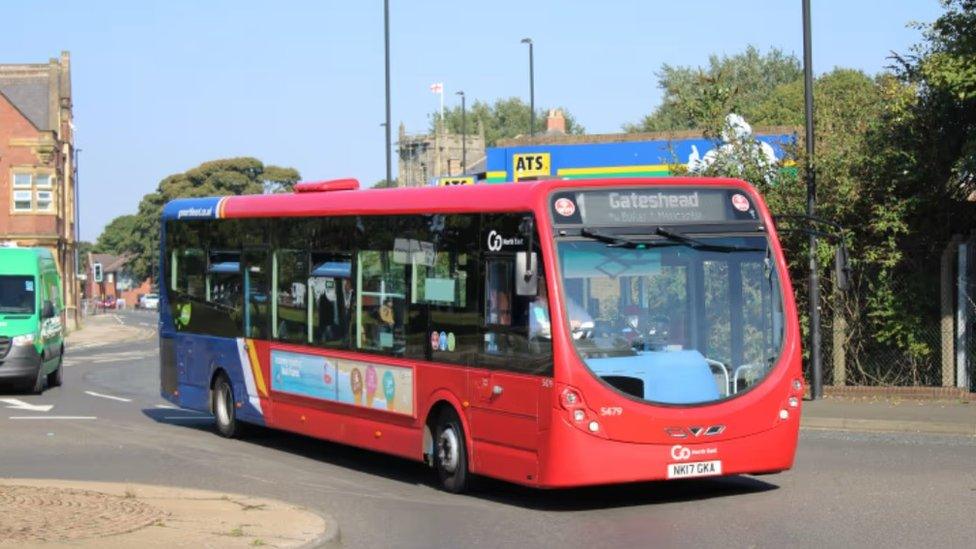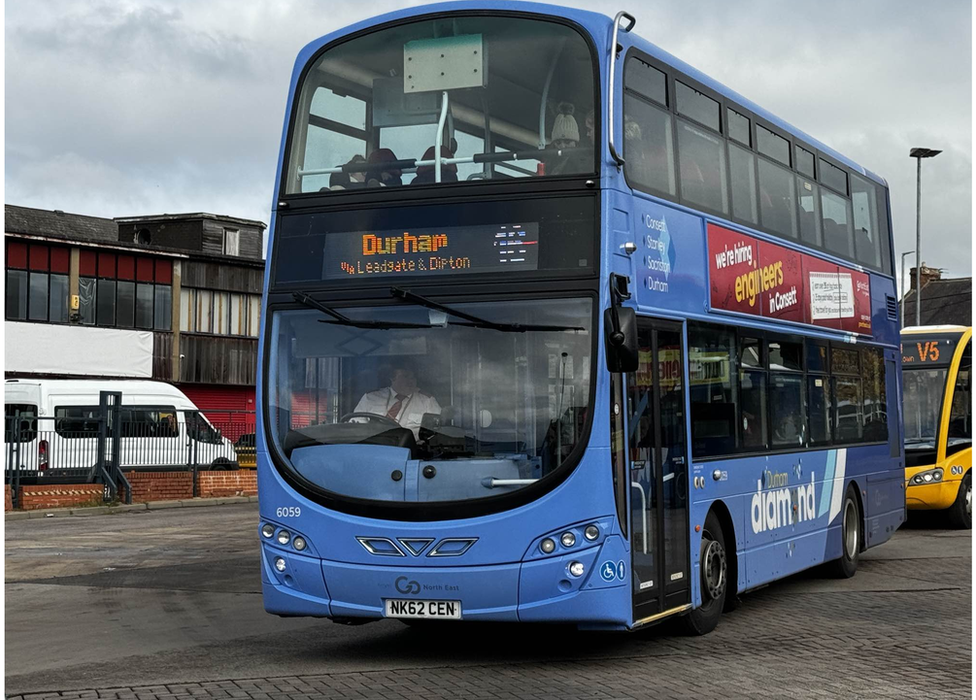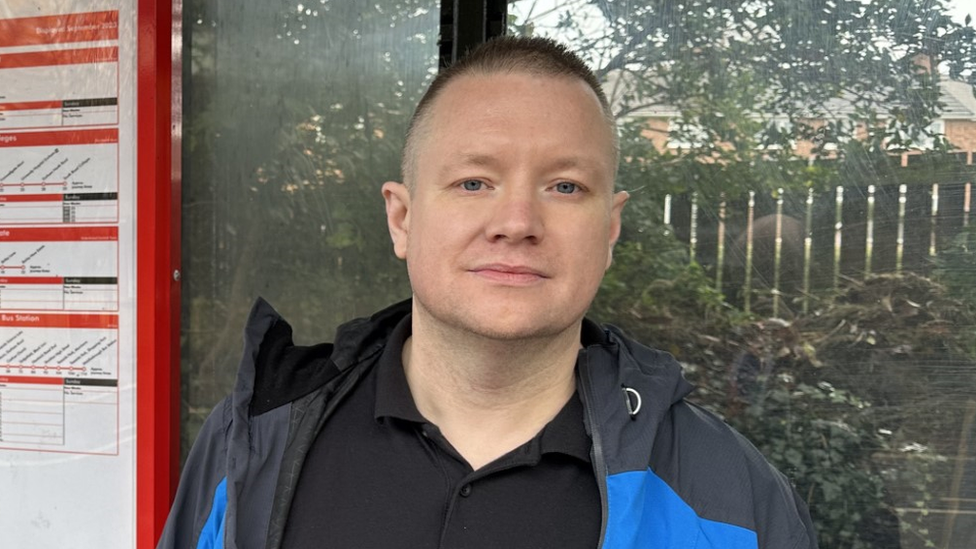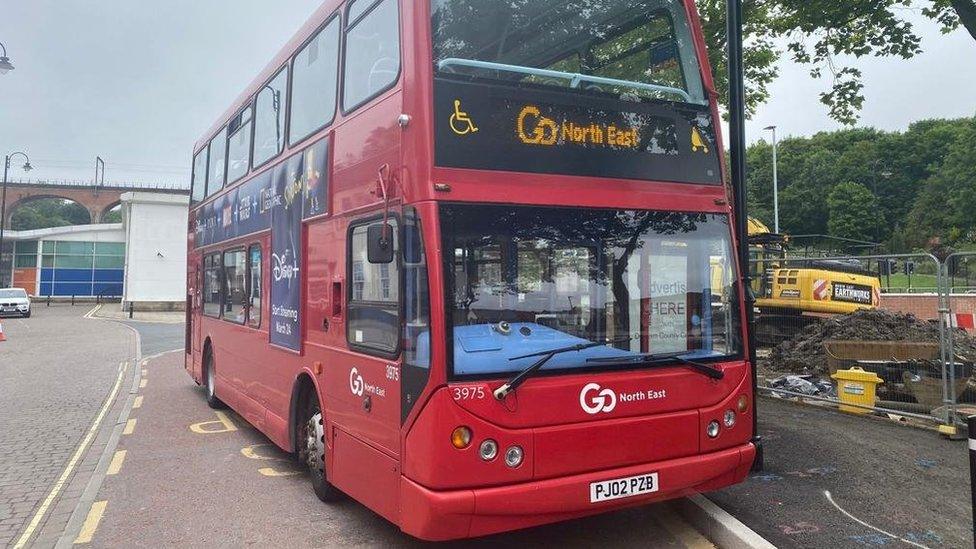Go North East: Bus strike continues after talks break down
- Published

Go North East says it will run more than 80 buses this week but the vast majority of its routes remain out of action
Fresh talks to try and end an indefinite bus strike at Go North East have broken down without a deal.
Workers began a continuous walkout on 28 October after rejecting a 10.3% pay rise offer, arguing drivers in the North West were paid more than them.
Go North East said union Unite had walked out of talks on Monday and had demanded pay increases every six months.
Unite claimed the public transport operator had "refused to budge".
Unite has called for a 13% increase to drivers' pay and has complained drivers at the sister firm earned an hourly wage more than 20% higher.
Workers had already staged two week-long strikes before beginning a continuous walkout.
Go North East said it would run more than 80 buses this week, including school buses and a service for hospital workers in Newcastle, but the vast majority of its routes remained on hiatus.
It has accused the union of being "intent on wide-scale disruption rather than dialogue".
'Unacceptable levels of hardship'
The talks were brokered by the reconciliation service ACAS and ended after four hours when Unite walked out, Go North East said.
Ben Maxfield, from the operator, said: "Passengers are facing unacceptable levels of hardship. But instead of a constructive dialogue all we get from the local Unite representatives is a set of moving goal posts, escalating demands, and a succession of U-turns."
Go North East said its offer of a 10.3% pay increase would make the drivers the best paid in the region and its drivers in Manchester worked to "far more flexible" scheduling rules.
Unite regional officer Dave Telford said members would not back down.
"I urge Go North East to put its hands in its pocket and come up with the money that it will cost them to end this dispute - pocket change for a company making £85m in profits," he said.
Mr Telford was asked by the Local Democracy Reporting Service about the impact the strikes are having on passengers.
He added: "They [drivers] don't want to be on strike, they want to be taking passengers around the North East to where they need to get to.
"This is a last resort and we have been frustrated because the employer will not address the pay disparity."

Follow BBC North East on Facebook, external, X (formerly Twitter), , externaland Instagram, external. Send your story ideas to northeastandcumbria@bbc.co.uk, external.
Related topics
- Published3 November 2023

- Published1 November 2023

- Published13 October 2023
